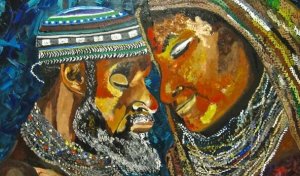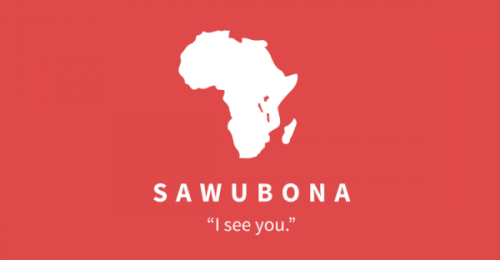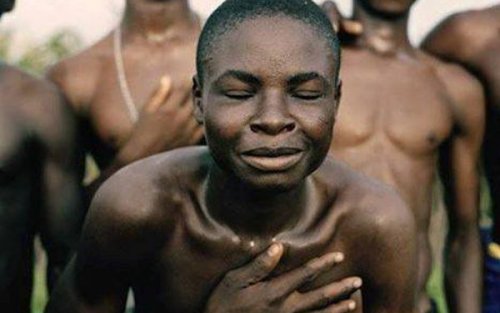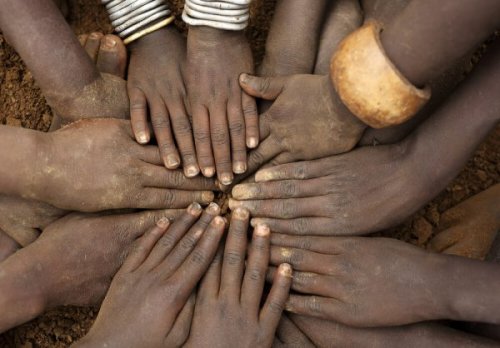Sawubona: An African Tribe's Beautiful Greeting


Written and verified by the psychologist Valeria Sabater
The most common greeting in the Zulu tribe is Sawubona. It literally means “I see you, you are important to me and I value you”. It’s a way to make the other person visible and to accept them as they are with their virtues, nuances, and flaws. In response to this greeting, people usually say with “Shiboka”, which means “I exist for you”.
Natal was one of the four original provinces of South Africa. It included the Bantustan of KwaZulu, or the land of the Zulus. Most people know about it due to its famous war with Britain at the end of the 19th century. However, sometimes history books camouflage or hide things. They can relegate or disregard our cultural, human, and philosophical legacies. This is a shame, as the African culture is so fascinating.
Sawubona: All my attention is with you. I see you and I allow myself to discover your needs, to see your fears, to identify your mistakes and accept them. I accept you for what you are and you are part of me.
Sawubona’s roots
Curious as it may seem, the term Sawubona acquired importance in the 90s because of an engineering book. In The Fifth Discipline: The Art and Practice of the Learning Organization, Peter Senge, a professor at Stanford University, spoke of the Zulus and the magnificent way they interact with one another. He wrote about how they handled problems with one another. He also said that they’d likely become one of the most powerful civilizations in Africa.
Sawubona symbolizes the importance of directing our attention to another person. It exists to remind us to understand others without prejudice and to leave grudges behind. The term reminds us to be aware of other people’s needs and to give importance to individuals within a group. It also helps us think about integrating ourselves into our communities and valuing them.

Sawubona: I see you as you are
In Western culture, the most common greeting people use is undoubtedly “Hello, how are you?” Most of us express these words quickly and without waiting for a response. This is a shortcut to a conversation. It’s a fast and easy greeting that allows us to look like we care about the other’s well-being, but it’s also quick. We rarely look into each other’s eyes. Because life is so busy and pushes us forward, we feel as if we have little time to sit, interact, and really get to know the people we interact with.
The Zulu people promoted the need to see each other slowly and as they are. They look for moments where they can maintain eye contact with the person they’re talking to. They have learned how to feel and listen to other people. Zulus have learned how to embrace another person’s soul and how to find and heal other people’s dark corners and wounds. It’s important to them to have healthy, contributing citizens in their community.
Sawubona is a word that reminds us to trust one another. It reminds us to see the other person as they are and pay attention to them. We have to authentically understand them and see their needs, desires, fears, sorrows, and virtues. Who wouldn’t want to be seen this way? It’s really enriching to make another person feel seen and giving them a space to be heard.

Some people have found similarities between the word Sawubona and Hindi’s Namaste. These are more than greetings. They’re ways to enlighten the other person by communicating how important the other person is to you. There’s an immense beauty in these gestures. There’s something healing and even cathartic about them that can serve as inspiration in our daily lives.
Shikoba: I’m relieved to know that I exist for you
When someone from the Zulu community commits an inappropriate or offensive act, their presence is required in the center of the village. Their neighbors, friends, and family make a circle around them. For two days, they go to the person and greet them by saying “Sapubon”. They start reminding them of their good deeds, virtues, successes, and great qualities.
For the Zulu community, as well as for Rousseau, no man is born evil. Sometimes, crises and imbalances make us stray away from our natural goodness. The purpose of these meetings in the center of the village is to remind the person that they’re actually a good person at heart. In turn, they also show them how important they are to the rest of the community. The purpose is to praise them and give them visibility so that they can return to a path of harmony and joy.
Therefore, each time a member of the community addresses another with the word Sawubona, the other person responds by saying Shikoba. This expression creates relief and happiness because the person who thought they were in trouble because of their bad acts gets a second chance. The community gives them an opportunity to start over.

The Zulu people believe that human beings exist only if others see and accept them. The community makes the person. Therefore, nothing is more satisfying than being forgiven after a mistake. Feeling loved and accepted is something we all crave.
Let’s learn from this African tribe. We need to learn to see others as they are and pay attention to those around us. As the Sawubona greeting goes: I see you, I accept you as you are. Thinking this way will allow us to see each other’s needs, forgive mistakes, and promote cohesion in our communities.
This text is provided for informational purposes only and does not replace consultation with a professional. If in doubt, consult your specialist.








